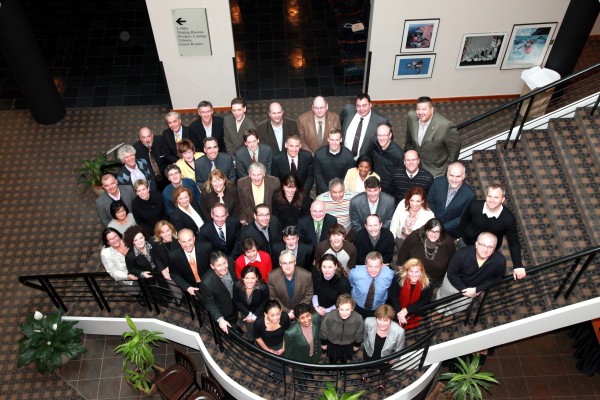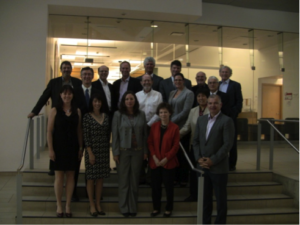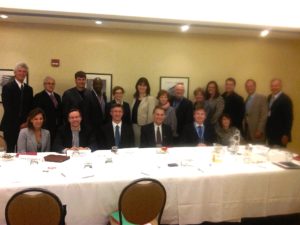
C21 Canada successfully hosted their inaugural forum on 21st Century learning February 15th at the Kingbridge Centre in King City, Ontario. The event allowed the founding members of Canadians for 21st Century Learning and Innovation Summit (C21 Canada) to benefit from the advice of 50 education and business leaders from across Canada. The delegates discussed and provided feedback on C21 Canada’s draft position paper on 21st Century, entitled Shifting Minds and also identified the key actions C21 Canada should pursue to further the 21st Century learning agenda in Canada.
The Summit commenced with an introductory presentation on global economic, social and learning trends in by Charles Fadel, author of 21st Century Skills and founder of the Centre for Curriculum Re-Design located at Harvard University. The delegates also discussed the Canadian Education Association’s recent findings relating to how Canadian students were disengaging from learning and how new evidence on how people learn combined with modern instructional practices will improve student engagement and performance.
C21 Canada also took the opportunity to officially launch their organization and unveil their new website www.c21canada.org.
C21 Canada’s Shifting Minds draft document identifies the key elements of a 21st Century learning framework, including the need for today’s students to be highly skilled in literacy and numeracy, as well as learning competencies such as creative and innovative thinking, collaboration, communication and other skills that world leaders in learning have determined to be of increasing importance in the knowledge economy and era. Modern instructional practices designed to better engage students and help them improve their levels of understanding and achievement are also identified in the draft position paper while building on the relevancy of local content and themes from core ccurriula. Delegates supported C21 Canada’s position that while the global movement toward 21st Century models of learning in public education is a positive development for students, it was important to have a framework and model that reflects Canadian values and culture.
C21 Canada welcomes feedback on the Shifting Minds draft document, posted on this website. The document will then be revised based on the advice received and eventually form the base for C21 Canada’s efforts to see an accelerated pace of 21st Century competencies, instructional practices and digital resources being integrated into Canada’s learning systems. Anyone interested in commenting to C21 Canada on the draft Shifting Minds document is encouraged to send their remarks to feedback @ c21canada.org or below in the comment section.
The feedback from the delegates on the event was very positive and the members of C21 Canada were very pleased with the level of engagement and quality of advice received.
To that end….would selected participants be invited to submit a short blog or statements about their feedback to provide a hint of flavour as to the culture present…and to capture an authentic positive voice…..some of the comments made by participants during the lightening round provided optimisn and a positive voice to the process.
– John Kershaw, President, C21 Canada


 Canada needs a national vision for 21st Century learning models of public education. There is an urgent need for Canadians to understand the economic and social imperative underlining this debate. The world is shifting to a knowledge economy, fuelled largely by digital technologies. Wealth creation is and will continue to be generated by highly creative and innovative people. Failure to impart 21st Century competencies and skills to a nation’s youth will make that country economically vulnerable to those that do.
Canada needs a national vision for 21st Century learning models of public education. There is an urgent need for Canadians to understand the economic and social imperative underlining this debate. The world is shifting to a knowledge economy, fuelled largely by digital technologies. Wealth creation is and will continue to be generated by highly creative and innovative people. Failure to impart 21st Century competencies and skills to a nation’s youth will make that country economically vulnerable to those that do.